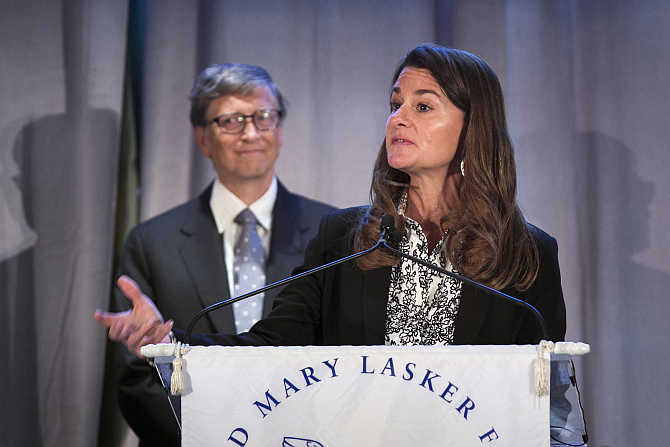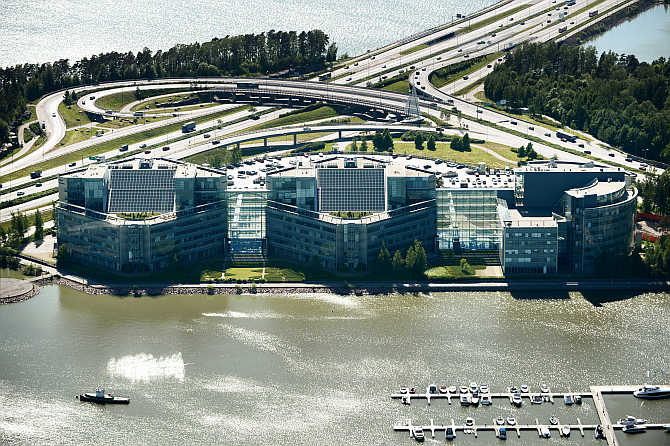
There is no shortage of businessmen in India who have run their firms into the ground, putting into jeopardy money given to them by small shareholders.
Think of Manmohan Singh as the country's CEO, a professional who was elevated to the top job because of his accomplishments and not because of family connections. Suddenly, a decision taken by him is condemned by the largest stakeholder as "nonsense" that ought to be "torn up and thrown away", not in a closed-door board meeting in which the stakeholder is present but on national television.
This causes him serious loss of face. He doesn't resign, perhaps because the job comes with a whole lot of perks, but his authority is ravaged. What if the largest stakeholder was also the CEO and was responsible for the questionable decision? Would he have received a similar rebuke?
Would anybody have dared to chastise him in public, cut his stature by 99 per cent in a matter of minutes? I am pretty certain nothing would have happened to him. The Indian tradition is to give the promoter-CEO a free hand. He cannot be dislodged and is answerable to nobody.
Take a look at Infosys. It was losing out to rivals; it stopped giving quarterly earnings guidance from June 2012 after missing its target five times in the preceding six quarters; it got overtaken by Cognizant in size earlier this year; and its attrition rate raced ahead of peers such as TCS and Wipro.
...

A professional CEO would have found himself in a very uncomfortable position. But it was being run by a founder-promoter, S D Shibulal. So what does the company do? It brings back its iconic co-founder, N R Narayana Murthy, as executive chairman, and Kris Gopalakrishnan, another founder, as executive vice-chairman.
Of course, Shibulal continues as the company's managing director and CEO. Some analysts, former employees and watchdogs raised their voice against it, but their protest didn't add up to much. The shareholders were relieved at Narayana Murthy's return and the Infosys stock rallied.
Vijay Mallya is another example of the aura that surrounds promoter-CEOs. He had an unabashedly lavish lifestyle, even as his flagship liquor business was running on extremely thin profit margins and his airline, Kingfisher Airlines, was going belly up. There wasn't a murmur of protest from any quarter. It was only earlier this year that the banks decided to recall the loans they had given to his loss-making airline.
But the signals were all there for anyone to see that the venture was in serious pain. Its debt was first restructured in November 2010. In April 2011, the banks converted part of the debt into equity. (This was done at almost Rs 65 a share - a 60 per cent premium to then market price; the current price is around Rs 5.30.) But that didn't help either. And the banks waited more than a year to recall the loans.
...

Compare this to what is happening elsewhere. Around the time the "nonsense" drama was being played out in India, three unnamed shareholders of Microsoft were lobbying the company's board to make Bill Gates step down as chairman. Gates's continuance as chairman, the shareholders were arguing, effectively blocked the adoption of a new strategy and was certain to make things difficult for the successor to outgoing CEO Steve Ballmer.
Under pressure for a long time from shareholders to improve the company's performance and share price, Ballmer had announced in August that he would step down in a year's time. The shareholders are worried that Gates' role in the company is not in sync with his reducing stake. He owned 49 per cent of Microsoft before it went public.
But he sells 80 million shares every year to fund his philanthropic work. His current stake stands at 4.5 per cent, and is slated to fall to zero by 2018. The shareholders have complained that Gates has increasingly been spending more time on the charitable work done by the Bill & Melinda Gates Foundation, which leaves him little time to run Microsoft. It is not clear if the shareholders will succeed in their bid to dislodge Gates. Both Gates and Ballmer have indicated that they will seek re-election to the board.
...

Microsoft, mind you, continues to be hugely profitable, in spite of its botched-up diversifications. Though some analysts are not enthused by its $7.2-billion acquisition of Nokia, given its poor track record in the hardware business, there is no imminent threat of the company collapsing. Still, Gates is being accused of impeding the company's growth. The crown doesn't rest easily on his head.
Would something like this have ever happened in India? No way. When did you last hear of small non-promoter shareholders, independent directors or lenders taking to task a non-performing promoter-CEO? It simply doesn't happen here. There is no shortage of businessmen in the country who have run their companies into the ground, putting into jeopardy money given to them by small shareholders and lenders.
There's fundamentally nothing wrong with failures. Risk is an unavoidable part of business. All shareholders and lenders know that. So long as they have been provided all relevant information before they invest, they cannot fault the promoter. Businesses often falter because of the managerial ineptitude, or at times plain greed, of the promoter.
I know several businessmen who shouldn't be allowed within a mile of any factory or office, but I haven't seen any of them ever being pulled up, either by the shareholders or by the lenders. It is only now that the banks have started to name and shame some of their defaulters. This initiative needs to be carried to its logical conclusion, as much in business as in politics.